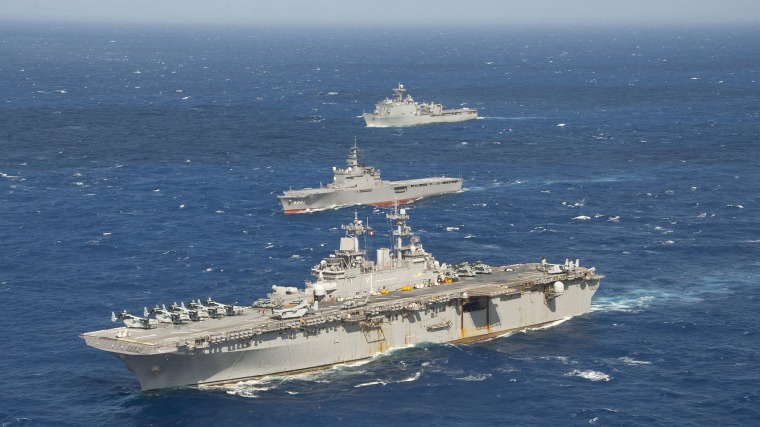HONG KONG — China has denied a request for a U.S. warship to visit Hong Kong, American officials said Tuesday.
The incident came amid rising tensions between Beijing and Washington over tariffs and follows the U.S. last week imposing sanctions on China after it bought arms from Russia.
The USS Wasp, an amphibious assault ship, had been due to make a port call in the former British colony of Hong Kong in October, diplomatic sources told Reuters.
"The Chinese government did not approve a request for a U.S. port visit to Hong Kong by the USS Wasp," a spokeswoman for the U.S. consulate in the city said.
"We have a long track record of successful port visits to Hong Kong, and we expect that to continue," she added.
In Beijing, Foreign Ministry spokesman Geng Shuang did not directly answer a question on whether China had denied the request.
"For requests for U.S. military ships to visit Hong Kong, China has always carried out approvals case by case, in accordance with the principle of sovereignty and the detailed situation," he told reporters, without elaborating.
In 2016, at a time of heightened tension over its territorial claims in the disputed South China Sea, China denied a request for a U.S. carrier strike group led by the John C. Stennis to visit Hong Kong.
On Saturday, China summoned the U.S. ambassador in Beijing and postponed joint military talks in protest against a U.S. decision to sanction a Chinese military agency and its director for buying Russian fighter jets and a surface-to-air missile system.
China and the United States are also embroiled in an increasingly bitter trade war which escalated again this week.
On Monday, Trump went ahead with a tax hike on $250 billion of Chinese imports. Beijing retaliated by imposing penalties on $60 billion of U.S. goods.
The conflict stems from U.S. complaints Beijing steals or pressures foreign companies to hand over technology. American officials say Chinese plans for state-led development of global competitors in robotics and other technologies violate its market-opening obligations and might erode U.S. industrial leadership.
Earlier Tuesday, a Chinese official said China could not hold talks with Washington on ending the trade dispute while the U.S. "holds a knife" to Beijing's neck by imposing tariff hikes.
Beijing is open to negotiations but whether they proceed is up to Washington, Deputy Commerce Minister Wang Shouwen said.

